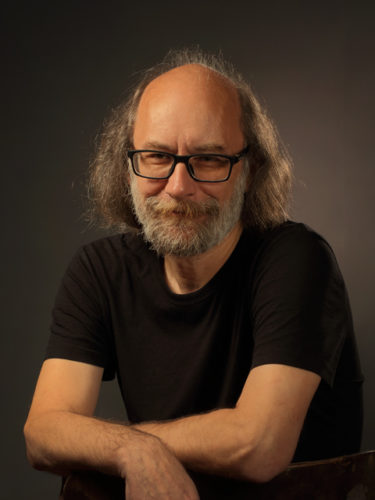


Director, teacher, since 1998 – the principal director of Belarus State Puppet Theatre (Minsk). Honored Artist of the Republic of Belarus. Winner of numerous theatre prizes and festival awards, including the Russian National Theatre Award THE GOLDEN MASK.
Alexei graduated from Belarusian Institute of Theatre and Arts (currently – Belarusian State Academy of Arts). In 1979−1982 he worked as a director and literary assistant to the principal director of Belarusian Puppet Theatre, in 1982−1986 – as the principal director of Mogilev Puppet Theatre.
In 1989−2006 Alexei was Associate Professor at Belarusian Academy of Arts. The young generation of Belarusian puppeteers consists predominantly of his students. He leads international workshops on puppet theatre in Belgium, Finland, Poland, Germany, and Iran.
Alexei has directed over than 90 productions across the world. He is one of those directors, whose name is associated with the new stage of the development of Belarusian puppet theatre, its moving to the international level. He describes his works as “the aesthetics of total theatre”, combining devices and expressive means of puppet theatre with openly operating the puppets, as well as adding components of musical and movement-based art. His productions embody the ludic element and grotesque, permeated with dark humor and skepticism.
Since 2013, Alexei Lelyavsky has collaborated with St. Petersburg theatre Karlsson Haus. In the repertoire there are three productions directed by him: Odyssey (by K. Norrevig after Homer, 2014), Vanya, a fairy tale for adults “about the mysterious Russian soul” (2015, winner of THE GOLDEN MASK in the categories Best Director and Best Actor), Biography (after The Ugly Duckling by H. C. Andersen, 2016).
Name: Lelyavsky Alexei Anatolyevich
Date and place of birth: 2 February 1957, Minsk, the Republic of Belarus
Education: Belarusian Institute of Theatre and Arts (currently Belarusian State Academy of Arts)
In a nutshell, about your career: I was influenced by the following people: my father (Anatoly Lelyavsky, People’s Artist of Belarus), Henk Boerwinkel, Peter Schumann, Marcel Cremer. I started in 1979 in Minsk, from 1982 to 1986 was the principal director in Mogilev, since 1986 – the principal director in Minsk. I directed about a hundred productions in theatres of Belarus, Germany, Poland, Russia, the Netherlands, Lithuania, Bosnia and Herzegovina, Slovenia. I was recipient of diplomas at numerous international theatre festivals, as well as the master teacher of three acting and two directing classes at Belarusian Academy of Arts, and also conducted master classes in Germany, Poland, Finland, Iran, Russia, Belgium, the Netherlands. Currently I am Artistic Director of Belarusian International Puppet Theatre Festival.
Favorite authors, subjects, stories. All those, whose work I directed and will direct in the future. The closest to me is Chekhov.
Favorite traditional system of puppets/texture. Any system.
Does a performance need text? It does need text, but not necessarily literary text…
Is the expression “puppet theatre” still relevant today? NO – because it denominated only a narrow segment of theatre spectacle.
What, in your opinion, is the difference between puppet theatre in Russia and the West? “Russian puppet theatre” (puppet theatre of the Russian Federation – formerly the USSR) is different from “the western” theatre (theatre of the countries of Western Europe) in EVERYTHING and, first of all, because of the fact that it is a part of the state system with all advantages and disadvantages resulting from it. The main problem of professional school is the lack of willingness to foster individual creative freedom.
What is useful about collaboration and cultural exchange? All this is useful for those who have not lost the desire to study.